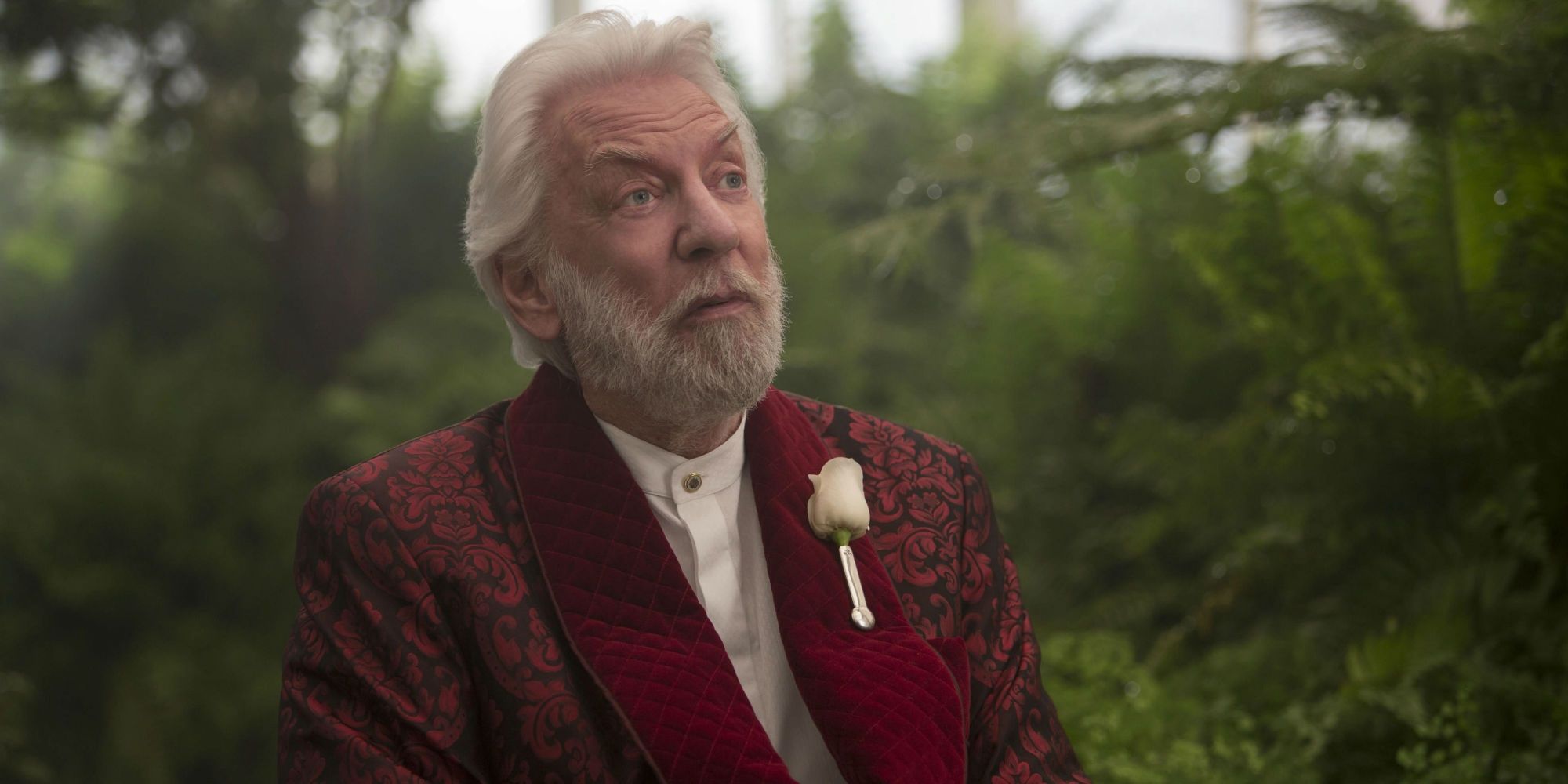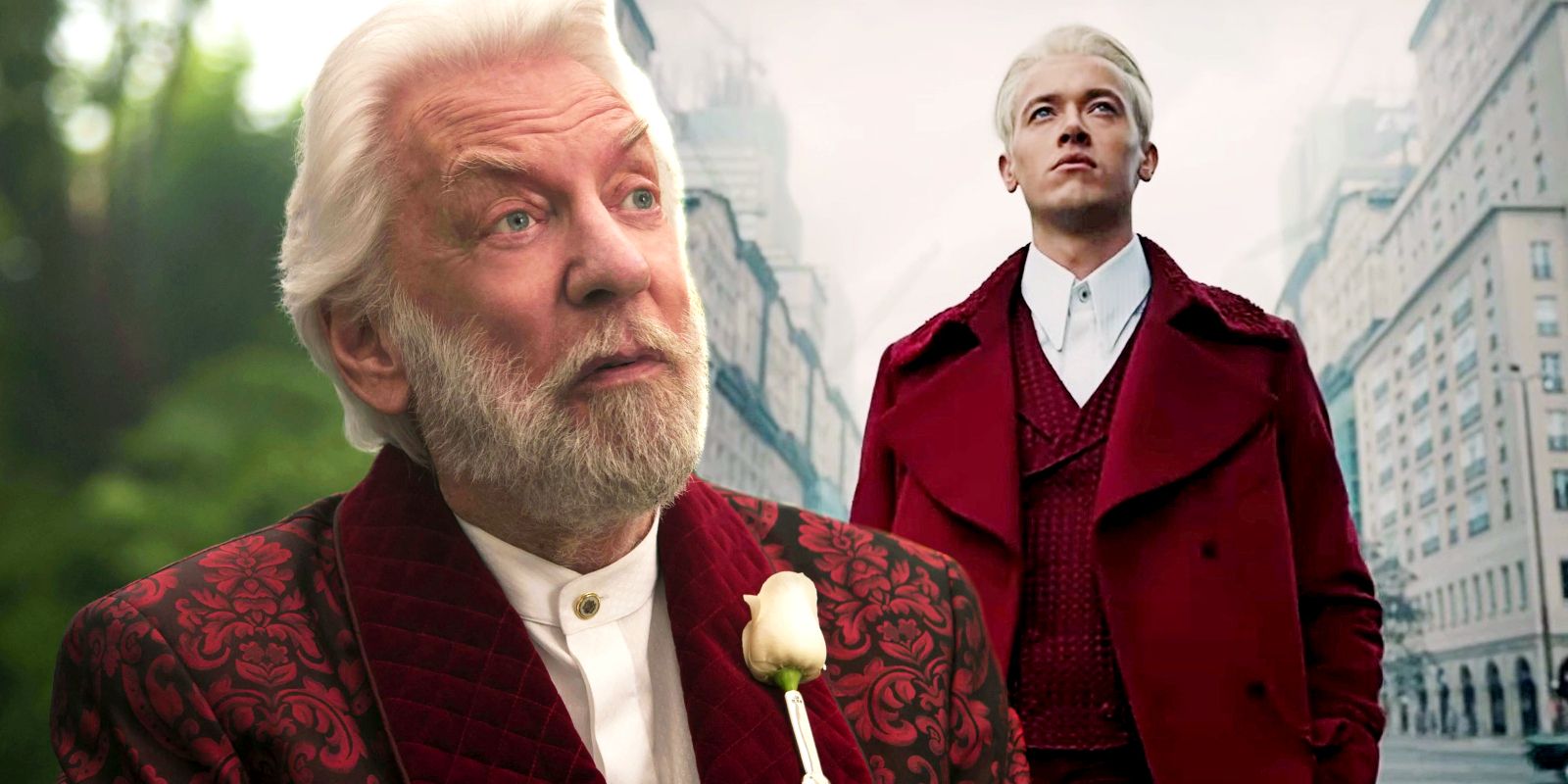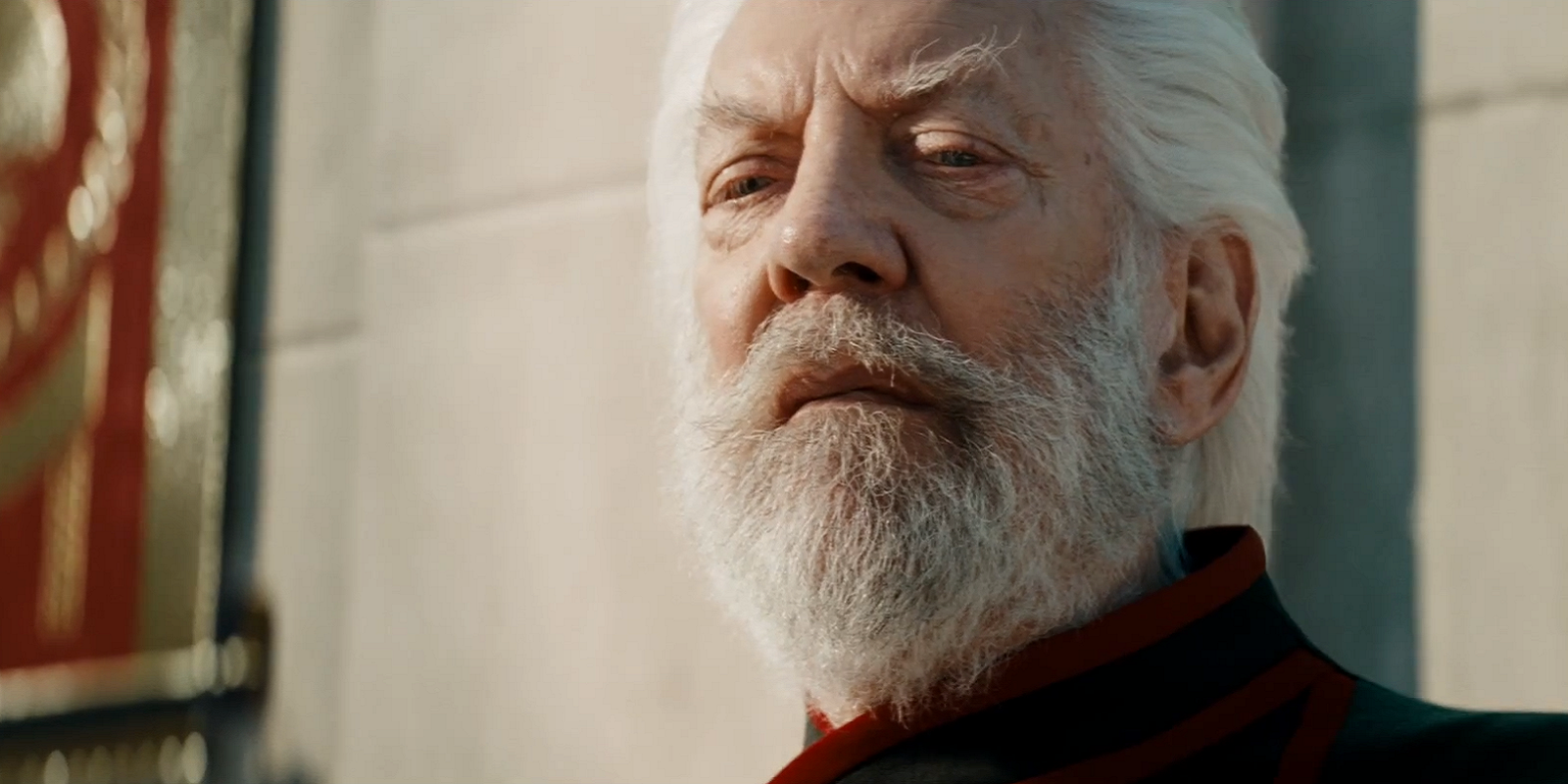President Snow: The Architect Of Panem's Enduring Tyranny
In the dystopian world crafted by Suzanne Collins, few figures cast as long and chilling a shadow as President Coriolanus Snow. His name alone evokes images of absolute power, calculated cruelty, and a regime built on fear and spectacle. As the tyrannical ruler of Panem and the orchestrator of the brutal Hunger Games, President Snow stands as a quintessential antagonist, embodying the corrupting influence of unchecked authority.
This article delves into the intricate layers of President Snow's character, his rise to power, the mechanisms he employed to maintain control, and the indelible legacy he left upon a fractured nation. While the provided "Data Kalimat" in the prompt pertains to the actions and policies of former U.S. President Donald J. Trump, it is not relevant to the fictional character of President Snow from "The Hunger Games" series. Therefore, this article will focus exclusively on President Snow as depicted in Suzanne Collins' literary works and their cinematic adaptations, exploring his profound impact on the narrative and its overarching themes.
Table of Contents
- The Architect of Panem's Oppression: Understanding President Snow
- A Reign of Fear: Snow's Methods of Control
- The Iron Fist in a Velvet Glove: Snow's Public Persona vs. Reality
- The Price of Power: Snow's Personal Sacrifices and Obsessions
- Legacy of Tyranny: President Snow's Enduring Impact
- The Unseen Hand: Snow's Influence on Panem's Future
The Architect of Panem's Oppression: Understanding President Snow
President Coriolanus Snow, the primary antagonist of "The Hunger Games" trilogy, is a character whose depth and complexity extend far beyond a simple villainous caricature. His story, particularly elaborated in the prequel "The Ballad of Songbirds and Snakes," reveals a cunning, ambitious, and ultimately ruthless individual whose formative experiences shaped his draconian worldview. Born into a once-prestigious but declining Capitol family, Snow's early life was marked by poverty and a desperate struggle to restore his family's honor. This background instilled in him a profound understanding of power's fragility and the lengths one must go to secure and maintain it.
His rise to the presidency was not merely a matter of inheritance but a testament to his strategic brilliance, manipulative prowess, and unwavering conviction in his own superiority. He believed in the necessity of control, viewing the districts as unruly children who needed a firm hand to prevent chaos. For Snow, the Hunger Games were not just a punitive measure but an essential tool for social engineering, designed to remind the districts of their subservience and the Capitol's omnipotence. His long tenure as president solidified his grip on Panem, transforming him into an almost mythical figure of authority, whose every decree was absolute law.
Personal Data: Coriolanus Snow
| Attribute | Detail |
|---|---|
| Full Name | Coriolanus Snow |
| Alias | President Snow |
| Role | President of Panem |
| Affiliation | The Capitol |
| Key Traits | Intelligent, manipulative, ruthless, cunning, pragmatic, paranoid |
| Signature Item | White rose (often scented to mask the smell of blood/poison) |
| Notable Actions | Orchestrated the Hunger Games, suppressed rebellions, used poison as a weapon, maintained absolute control over Panem. |
| Fate | Killed by the enraged mob during the final rebellion. |
A Reign of Fear: Snow's Methods of Control
President Snow's rule was characterized by an intricate web of control mechanisms, all designed to prevent dissent and maintain the Capitol's dominance. The Hunger Games stood at the core of this strategy, but they were merely one facet of a broader system of oppression. Snow understood that true power lay not just in brute force, but in psychological manipulation and the systematic erosion of hope.
Propaganda was a cornerstone of his regime. The Capitol meticulously controlled all information, presenting a sanitized and glorious image of itself while demonizing the districts and their past rebellion. Victory tours, carefully choreographed interviews, and staged events were all part of a grand performance, designed to reinforce the Capitol's narrative and showcase its benevolence, even as it perpetuated unimaginable cruelty. Surveillance was pervasive, with Peacekeepers monitoring every aspect of district life, and informants lurking in every shadow. Any hint of rebellion was met with swift and brutal retaliation, often public and exemplary, to instill fear and deter future acts of defiance.
The Spectacle of Suffering: How the Games Maintained Power
The Hunger Games themselves were President Snow's masterpiece of control. Far more than just a punishment for the districts' past rebellion, they served multiple, insidious purposes. Firstly, they were a constant, annual reminder of the Capitol's absolute power and the districts' helplessness. By forcing children to fight to the death, Snow ensured that the memory of the rebellion remained fresh and that hope for future uprisings was systematically crushed.
Secondly, the Games fostered division among the districts. Instead of uniting against the Capitol, they were pitted against each other, forced to view their fellow district members as rivals. This "divide and conquer" strategy prevented the formation of a cohesive resistance movement. Thirdly, the Games were a form of psychological warfare. The Capitol forced the districts to watch their children die, creating a collective trauma that paralyzed them with fear and despair. The brief moments of "hope" offered by a victor were carefully managed, serving as a pressure release valve to prevent outright explosion, while still reinforcing the Capitol's ultimate authority. President Snow meticulously oversaw every detail, from the arena design to the public perception of the tributes, ensuring the Games served his overarching goal of maintaining an iron grip on Panem.
The Iron Fist in a Velvet Glove: Snow's Public Persona vs. Reality
One of the most terrifying aspects of President Snow's character is the stark contrast between his public demeanor and his true nature. In public, he often presented himself with a calm, almost grandfatherly presence, speaking in measured tones and exuding an aura of refined authority. He would offer pleasantries, a polite smile, and even a hint of charm, particularly when addressing the Capitol's elite or the public through carefully curated broadcasts. This "velvet glove" masked the "iron fist" beneath.
In reality, Snow was a man of unparalleled ruthlessness, driven by a deep-seated paranoia and an insatiable desire for control. He did not hesitate to eliminate anyone who posed a threat, real or perceived, often through the use of poison, a method he employed with chilling regularity. The scent of roses, which he always wore, served as a subtle cover for the metallic tang of blood he often tasted due to a past poisoning. This duality—the elegant, composed leader on the surface, and the cold-blooded killer beneath—made him an even more formidable and unpredictable adversary. His ability to project an image of stability and control while committing heinous acts behind the scenes underscored his mastery of manipulation and psychological warfare.
Whispers of Rebellion: The Seeds of His Downfall
Despite President Snow's meticulous planning and brutal enforcement, the seeds of rebellion were inevitably sown. His system, designed to crush hope, inadvertently created the very conditions for its resurgence. The sheer injustice and cruelty of the Hunger Games, particularly the repeated sacrifices of innocent children, began to chip away at the Capitol's facade of invincibility. The spark of defiance ignited in District 12, the poorest and most overlooked district, with the emergence of Katniss Everdeen.
Katniss, through her unexpected acts of rebellion in the arena—such as volunteering for her sister, forming alliances, and defying the Capitol's rules—unwittingly became a symbol of hope. Her defiance, amplified by the media's forced coverage, resonated across the districts. The mockingjay, once a forbidden symbol, transformed into an emblem of resistance, uniting the disparate districts under a common cause. Snow, despite his intelligence, underestimated the power of human spirit and the uncontrollable nature of genuine hope. His attempts to crush Katniss only elevated her status, turning her into the Mockingjay, the face of the burgeoning rebellion that would ultimately challenge his long-standing reign.
The Price of Power: Snow's Personal Sacrifices and Obsessions
President Snow's pursuit and maintenance of absolute power came at a significant personal cost, transforming him into a prisoner of his own making. His life was defined by an all-consuming obsession with control, leading to an increasing paranoia that isolated him from genuine human connection. Every relationship, every interaction, was viewed through the lens of utility and potential threat. He trusted no one, and rightly so, as his own methods of eliminating rivals had taught him the treacherous nature of power dynamics.
The constant fear of losing his grip manifested in his meticulous attention to detail and his reliance on poison, not just for others, but also as a means of self-preservation against potential betrayals. This led to his chronic mouth sores and the constant taste of blood, which he masked with the strong scent of genetically engineered roses. These roses became a chilling symbol of his character: outwardly beautiful and fragrant, but inwardly tainted and deadly. His personal life was devoid of warmth, replaced by a cold, calculated existence dedicated solely to maintaining his tyrannical empire. The price of his power was his humanity, leaving him a hollowed-out shell, consumed by his own fear and ambition.
Legacy of Tyranny: President Snow's Enduring Impact
President Snow's reign, spanning decades, left an indelible and devastating mark on Panem. His policies and the very structure of his government created a society deeply scarred by trauma, division, and fear. Even after his ultimate demise, the shadow of his tyranny lingered, posing significant challenges for the new leadership under President Coin and later, President Paylor. The Capitol's opulence and the districts' poverty were stark reminders of his deliberate stratification of society, designed to keep the populace weak and dependent.
His death, ironically at the hands of the very system he created (the enraged mob, reminiscent of the brutal nature of the Games), marked the symbolic end of an era. However, the psychological wounds inflicted by his rule would take generations to heal. The Hunger Games had ingrained a deep-seated fear and distrust, making the transition to a more equitable society incredibly difficult. The very notion of peace and unity had to be painstakingly rebuilt from the ashes of his oppressive regime. President Snow's legacy is not just one of cruelty, but also one of profound societal damage that required immense effort to overcome.
Beyond the Capitol: The Universal Themes of Authoritarianism
While President Snow is a fictional character, his portrayal in "The Hunger Games" offers a powerful and chilling exploration of universal themes related to authoritarianism, power, and human nature. His character serves as a stark warning about the dangers of unchecked power and the insidious ways in which it can corrupt individuals and entire societies. Snow's belief that humanity is inherently chaotic and requires a strong, oppressive hand to maintain order echoes historical arguments made by real-world dictators.
His methods—the use of spectacle to distract and control, the manipulation of media, the suppression of dissent, and the systematic dehumanization of the "other"—are tactics that have been observed in various authoritarian regimes throughout history. By examining President Snow's reign, readers and viewers are prompted to reflect on the fragility of freedom, the importance of critical thinking, and the eternal struggle against oppressive forces. His story transcends the realm of fantasy, offering a relevant commentary on the human condition and the constant vigilance required to protect democratic values.
The Unseen Hand: Snow's Influence on Panem's Future
Even in death, President Snow's influence continued to ripple through Panem. The rebellion's victory was not a clean slate, but a complex aftermath burdened by the choices made during and immediately after his reign. The new government grappled with the deep-seated divisions he had fostered, the economic disparities he had entrenched, and the psychological trauma he had inflicted. The very idea of justice and accountability for the Capitol's crimes was complicated by the extent of his influence and the complicity of many within his system.
The final decision to hold one last Hunger Games, albeit with Capitol children, highlights how deeply Snow's methods had permeated the thinking of even those who fought against him. This contentious choice, driven by a desire for retribution, demonstrates the lasting psychological scars and the difficulty of truly breaking free from the cycle of violence and oppression that President Snow had so meticulously cultivated. His legacy was not merely the ruins of a dictatorship, but the enduring challenge of building a just and peaceful society from its foundations.
A Cautionary Tale: Why President Snow Remains Relevant
President Snow remains a compelling and relevant figure in popular culture and beyond because he embodies the timeless archetype of the tyrannical leader. His story serves as a potent cautionary tale, reminding us of the insidious nature of power and its potential to corrupt even those who believe they are acting for the greater good. In a world where political systems are constantly evolving and the lines between truth and manipulation can often blur, Snow's character prompts critical reflection on leadership, governance, and the responsibilities of those in power.
His character forces us to consider uncomfortable questions: How do societies allow such figures to rise? What are the subtle ways in which control is exerted? And what is the true cost of security when it comes at the expense of freedom and humanity? The enduring relevance of President Snow lies in his ability to illuminate these profound societal questions, making

10 Things To Know About Coriolanus Snow Before The Hunger Games Prequel

President Snow Hunger Games Actor

The Hunger Games: Why President Snow Coughs Up Blood, Explained